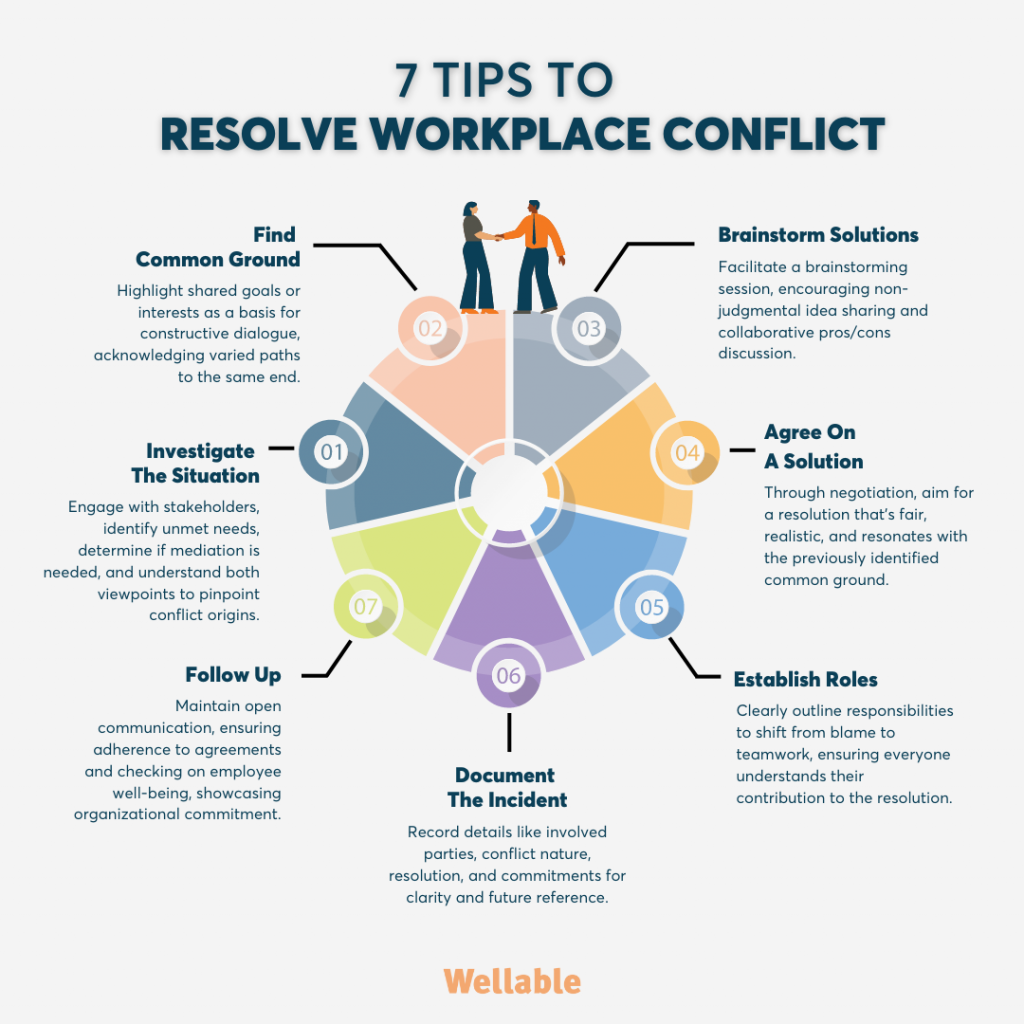Conflict is an inevitable part of life. From our personal relationships to our professional endeavors, disagreements can arise and push us out of our comfort zones. While conflict may seem uncomfortable and distressing, it is also an opportunity for growth and transformation. When we learn how to manage conflict effectively, we can turn disagreements into solutions and strengthen our relationships in the process.
As someone who has experienced their fair share of conflicts, I can attest to the power of effective conflict management. Whether it was a disagreement with a coworker or a heated debate with a loved one, these experiences taught me the importance of open communication, active listening, and compromise. Through trial and error, I discovered strategies that have helped me navigate conflicts in a way that promotes understanding and fosters healthy resolutions.
One of the first steps in conflict management is understanding the root cause of the disagreement. It’s crucial to dig deeper and identify the underlying reasons for the conflict. Often, conflicts stem from differences in values, goals, or perspectives. Taking the time to reflect on these differences can bring clarity and empathy to the situation.
Once we have identified the root cause of the conflict, it is important to approach the conversation with an open mindset. It’s easy to fall into the trap of becoming defensive or trying to prove our point, but this only escalates the conflict further. Instead, we should strive to listen actively and validate the other person’s feelings and opinions. When we create a safe and respectful space for discussion, we invite the possibility of finding common ground and seeking mutually beneficial solutions.
During the conversation, it is essential to practice effective communication skills. This means expressing our thoughts and feelings assertively and honestly, without attacking or belittling the other party. Using “I” statements allows us to take ownership of our emotions and experiences, while avoiding blame and accusations. For example, saying “I feel unheard when you interrupt me” is more constructive than saying “You never listen to me.” By focusing on our own feelings and experiences, we engage in a more productive dialogue.
Furthermore, active listening is a key component of effective conflict management. When we truly listen to the other person, we demonstrate respect and empathy. This involves paying attention to not only their words but also their body language and emotional cues. Avoid interrupting and resist the urge to formulate a counter-argument while the other person is speaking. Instead, ask clarifying questions to ensure a complete understanding of their perspective.
As the conversation progresses, it is important to stay focused on finding a solution that benefits both parties. This involves seeking compromise and exploring alternative options. Collaborative problem-solving allows for creative solutions that neither party may have considered initially. By shifting the focus from being “right” to finding a resolution that meets everyone’s needs, we can create win-win outcomes.
However, conflict management also requires recognizing when a resolution may not be possible or when it is in our best interest to disengage. In certain situations, especially toxic or abusive relationships, it may be necessary to prioritize our well-being and establish boundaries. This can be a challenging decision, but it is essential to prioritize our mental and emotional health.
Lastly, conflict management is an ongoing process that requires practice and patience. It’s unrealistic to think that conflicts will disappear entirely from our lives. However, by incorporating these strategies into our interactions, we can transform conflicts into opportunities for growth and understanding. Learning from each conflict allows us to refine our communication skills, deepen our relationships, and cultivate a more harmonious environment.
In conclusion, conflict management is a valuable skill that empowers us to turn disagreements into solutions. By delving into the root causes of conflicts, practicing open communication, active listening, and seeking compromise, we can navigate conflicts successfully. Conflict management is not only about resolving immediate disputes but also about building stronger, more resilient relationships. With dedication and practice, we can transform conflicts from sources of stress and frustration into catalysts for personal and interpersonal growth. So, let’s embrace conflict as an opportunity for positive change and work towards building a more harmonious world.
